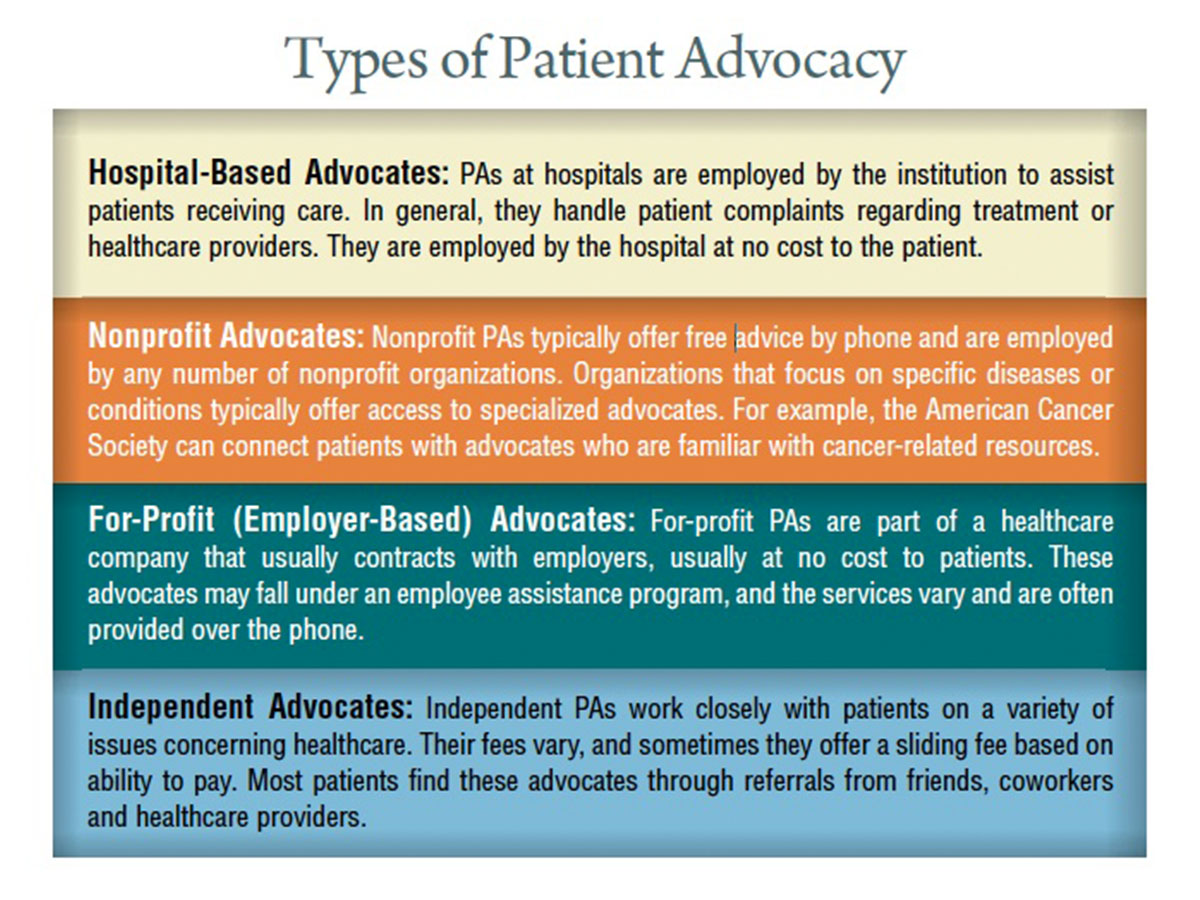Patient Advocacy: A Professional’s Perspective
- By Trudie Mitschang
CONNIE SUNDERHAUS, RN-BC, CCM, is a former patient advocate who is currently on staff at the Professional Patient Advocate Institute (PPAI). PPAI is a resource and training institute for practitioners who want to enhance, elevate and improve their skills in the burgeoning field of patient advocacy. According to its mission statement, PPAI exists to help professional advocates (PAs) navigate the increasingly complex world of healthcare by offering training to improve skills and, ultimately, patient outcomes.
BSTQ: For those unfamiliar with the profession, what is a PA?
Sunderhaus: There are a variety of definitions, but in general, a PA is a professional who can objectively assist individuals in understanding and making sense of their healthcare needs. The Society of Healthcare Consumer Advocacy further defines a PA as “professionals who represent and advocate for consumers across the healthcare continuum.”
BSTQ: Tell us about your experience in patient advocacy.
Sunderhaus: I am not currently practicing as a designated PA; however, I am a registered nurse and a certified case manager. On occasion, I do have direct patient interaction with injured workers and am involved with coordination of recovery and return-to-work activities and treatments. With the PPAI, I serve as current chair of the advisory board, monitor any customer service inquiries and serve as an instructor for the Hospital Patient Advocate certificate course.

BSTQ: To what do you attribute the increased demand for PAs?
Sunderhaus: Many factors have impacted the growing need for PAs, including a growing number of senior populations, increasing numbers of individuals with multiple chronic conditions, the need for healthcare systems to prevent readmissions and improve patient satisfaction, and increased recognition of the importance of smooth transitions of care.
BSTQ: What type of training or certification is available?
Sunderhaus: Currently, there is no national certification for PAs. However, there is a board that has developed the types of requirements needed, and it is looking to move toward a national accreditation/certification process. There are also online certificate programs and several colleges that offer certificate programs.
BSTQ: How do PAs support/assist the healthcare provider?
Sunderhaus: The PA is primarily available to work with the individual healthcare user and is focused on supporting the individual within the healthcare system. As a support to the provider, the PA could assist in clarifying instructions given by the provider, help with appointment management and transportation arrangements, and assist with transitions of care between care settings.
BSTQ: How are PAs compensated?
Sunderhaus: PAs most often have a contractual arrangement directly with the patient or family. This type of direct arrangement could also be made through a trust officer or attorney. Hospitals and healthcare systems also are employers of PAs, where they are used in a variety of coordinating roles.